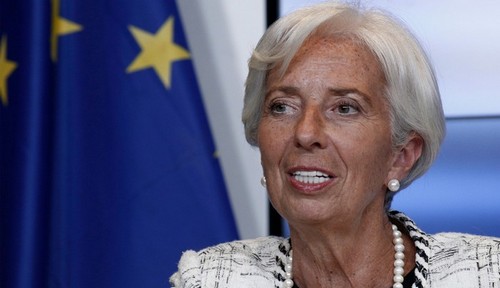In a shareholder announcement published on Aug. 8, Overstock stated that its blockchain subsidiary firm, tZERO, is progressing as planned, with a focus on six key areas – notably security tokens.
Retail giant Overstock has released its Q2 2019 financial results, revealing a 23% decrease in revenue and a 19% loss in gross profit.
While the fresh results point to a decrease by most metrics, Overstock has returned to a positive adjusted Earnings Before Interest, Taxes, Depreciation and Amortization for the first time since Q2 2017.
Moreover, gross margin has seen a 79 basis point increase over the preceding quarter, with sales and marketing expenses down 63% over the same time frame.
No pain no gain
The results reveal that tZERO posted an almost $10 million pre-tax loss and also impacted its parent firm’s general and administrative (GA) expenses:
“GA expenses totaled $32.0 million and $31.4 million in Q2 2019 and 2018, respectively, a 2% increase … The increase was primarily due to a $6.0 million decrease in cryptocurrency gains from our Q2 2018 sale of cryptocurrency received during the tZERO security token offering, with no similar activity in Q2 2019.”
In its breakdown of its various business segments, Overstock reveals that for Q2 2019, tZERO accounted for just over $4.1 million of its roughly $373 million net revenue.
A trailblazer in retail crypto adoption
According to the announcement, Overstock was the first major retailer to accept cryptocurrency back in 2014 – founding its blockchain-focused commerce subsidiary Medici Ventures that same year.
Just yesterday, Cointelegraph reported that tZERO is planning to allow the public to trade its security tokens within a matter of days and expects as many as 50,000 new investors among its existing Overstock shareholders to begin trading their security tokens.

While tZERO has been offering token trading since January of this year, it has until now only been available for accredited investors via a digital securities brokerage account at Dinosaur Financial Group.
The firm had completed its security token offering in August 2018, raising $134 million from over 1,000 global investors. In March of this year, it drew scrutiny from the United States Securities and Exchange Commission, sparking a price drop in Overstock shares.
Earlier his month, tZERO was awarded a patent for a solution that can anchor traditional trades and exchanges to public blockchains.
Coinbase Must Face Negligence Suit Over Bitcoin Cash Launch, Judge Rules
U.S. District Judge Vince Chhabaria of the Northern District of California dismissed the plaintiffs’ fraud and unfair competition claims against Coinbase, and the negligence claims brought by the ones who sold BCH. But he denied Coinbase’s motions to move the case to arbitration and to dismiss the buyers’ negligence claims, saying it is “plausible” that the company “breached its duty to maintain a functional market.”
Coinbase must face a negligence lawsuit from customers who bought bitcoin cash (BCH) following its allegedly botched listing on the exchange during the 2017 bull market, a judge has ruled.
“For starters, the fact that Coinbase halted trading within three minutes of the launch is indicative of dysfunction”, Chhabria wrote in the ruling Tuesday.
The case was brought last year by Jeffrey Berk, a former Coinbase user, who accused the exchange of allowing insider trading on its GDAX trading platform from Dec. 19–21, 2017, because BCH prices spiked right before Coinbase announced trading options on Dec. 20. Berk, an Arizona resident, brought the case on behalf of other traders. Two earlier versions of his complaint were dismissed.
In dismissing the insider trading theory, Chhabria cited a lack of “causation” proved by the plaintiff’s price volatility arguments. (Last year, the exchange hired two law firms to investigate insider trading allegations; they reportedly found no wrongdoing.)
Standard of care
Nevertheless, Coinbase will need to prove it applied a standard of reasonable care to prevent foreseeable harm to users.
Coinbase contested that it had a “duty” to strategize against market swings, citing a lack of responsibility to prevent the economic loss of others. The judge’s order replied, “the interpretation that the California Supreme Court would be most likely to adopt – is that Coinbase indeed had a duty to maintain a functional marketplace.”
Namely, because Coinbase “encouraged traders to enter the market”, by promoting the BCH launch, and held a “position of trust” when processing users’ transactions.
Because the sellers’ motion was dismissed with prejudice, it cannot be amended. However, the discovery process will continue, and Chhabria left a door open for the sellers to re-file should new evidence to support their position turn up.

